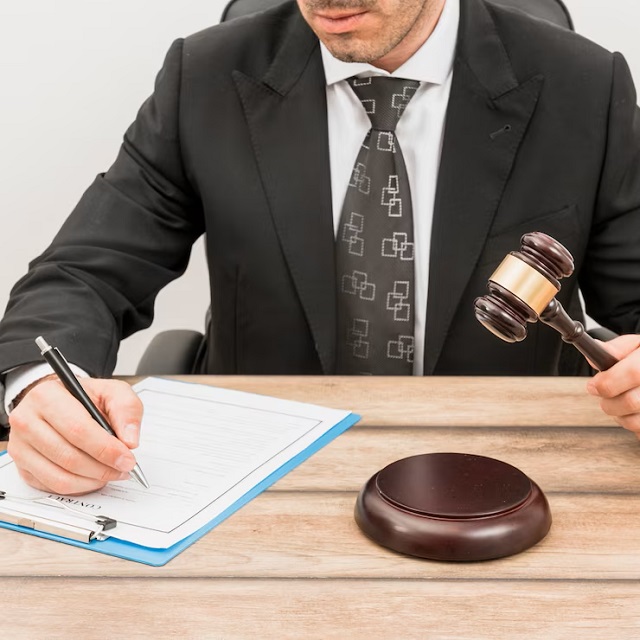How to Use Design Principles to Boost Your YouTube Channel's Appeal

When it comes to personal injury and workers' compensation law in Illinois, understanding your rights and legal options is crucial in ensuring you receive fair compensation in the event of an accident or workplace injury. This comprehensive guide will walk you through the key aspects of personal injury and workers' compensation laws in the state of Illinois, providing you with the necessary information to protect your rights and navigate the legal process.
Learn more about Personal Injury and Workers' Compensation laws in Illinois through experts at Schweickert Ganassin Krzak Rundio, LLP.
Personal Injury Law in Illinois
What is Personal Injury Law?
Personal injury law deals with cases where individuals suffer harm or injuries due to the negligent actions of others. In Illinois, personal injury cases encompass a wide range of accidents, such as car accidents, slip and falls, medical malpractice, and product liability. The fundamental principle behind personal injury law is to hold responsible parties accountable for their actions and provide compensation for the victims' losses.
Statute of Limitations
One crucial aspect of personal injury cases in Illinois is the statute of limitations. This refers to the time limit within which a victim must file a lawsuit. In Illinois, the statute of limitations for most personal injury cases is two years from the date of the injury. It's essential to be aware of this deadline to ensure you don't miss your chance to seek compensation.
Comparative Fault
Illinois follows a comparative fault system, which means that if the injured party is found partially at fault for the accident, their compensation may be reduced. If the victim's fault is determined to be 50% or more, they may not be eligible to recover any compensation at all. It's crucial to work with a skilled attorney who can help build a strong case and protect your rights in such situations.
Workers' Compensation Law in Illinois
Understanding Workers' Compensation
Workers' compensation is a system that provides benefits to employees who suffer work-related injuries or illnesses. It is a "no-fault" system, meaning that employees are entitled to benefits regardless of who was responsible for the accident. In Illinois, almost all employers are required to carry workers' compensation insurance to provide coverage for their employees.
Common Workplace Injuries
Workplace injuries can range from minor sprains to severe, life-altering accidents. Some of the most common workplace injuries in Illinois include slips, trips, and falls, repetitive motion injuries, back strains, and construction site accidents. Regardless of the type of injury, employees have the right to seek workers' compensation benefits.
Types of Workers' Compensation Benefits
Workers' compensation benefits in Illinois typically include:
- Medical Treatment: Coverage for all necessary medical treatment related to the workplace injury or illness, including doctor's visits, hospital stays, surgeries, and rehabilitation.
- Temporary Total Disability (TTD): If the injured employee is unable to work while recovering, they may be entitled to TTD benefits, which provide a portion of their lost wages.
- Temporary Partial Disability (TPD): TPD benefits may apply if the employee can perform some work tasks but at a reduced capacity, resulting in a partial loss of income.
- Permanent Partial Disability (PPD): If the employee sustains a permanent impairment but can still work in some capacity, they may receive PPD benefits.
- Permanent Total Disability (PTD): In cases where the workplace injury leads to a permanent disability preventing the employee from working, PTD benefits may be awarded.
The Interplay Between Personal Injury and Workers' Compensation
Exclusivity Rule
In Illinois, the "exclusivity rule" generally prevents employees from suing their employers for personal injury when they are already covered by workers' compensation. Workers' compensation is considered the exclusive remedy for work-related injuries, barring employees from filing personal injury lawsuits against their employers in most cases.
hird-Party Claims
However, there are situations where an injured employee may have grounds for a third-party claim. If the injury was caused, in whole or in part, by someone other than the employer or a co-worker, the injured employee may be able to pursue a personal injury lawsuit against that third party. For example, if an employee is injured in a car accident while driving for work purposes and the accident was caused by another driver, the injured employee may have a third-party claim against that driver.
Seeking Legal Representation
Importance of Legal Representation
Navigating personal injury and workers' compensation laws in Illinois can be complex and overwhelming, especially while recovering from injuries. Seeking legal representation from an experienced attorney can significantly enhance your chances of obtaining fair compensation and protecting your rights throughout the legal process.
Finding the Right Attorney
When choosing an attorney, look for someone with a strong track record in handling personal injury and workers' compensation cases in Illinois. Consider their experience, reputation, and commitment to advocating for their clients' best interests. A compassionate attorney who understands your situation can provide the guidance and support you need during this challenging time.
Steps to Take After a Personal Injury or Workplace Accident
Seeking Immediate Medical Attention
After a personal injury or workplace accident, your health and well-being should be your top priority. Even if your injuries seem minor, it's crucial to seek medical attention promptly. Some injuries may not manifest symptoms immediately, and delaying treatment could worsen your condition or affect your chances of receiving compensation later on. Additionally, obtaining medical documentation of your injuries is essential for your personal injury or workers' compensation claim.
Reporting the Incident
In workplace accidents, report the incident to your employer as soon as possible. Illinois law requires employees to report work-related injuries within 45 days. Failure to report within this timeframe may jeopardize your ability to claim workers' compensation benefits. When reporting the incident, provide accurate and detailed information about how the accident occurred and the injuries sustained.
Gathering Evidence
For both personal injury and workers' compensation claims, collecting evidence is crucial to support your case. If possible, take photos of the accident scene, injuries, and any contributing factors (e.g., hazardous conditions at work). Collect contact information from any witnesses who may have seen the accident occur. Keep track of all medical records, bills, and receipts related to your injuries and treatment.
Consulting with an Attorney
As mentioned earlier, seeking legal representation is a vital step in the process of pursuing a personal injury or workers' compensation claim. A knowledgeable attorney can help evaluate your case, guide you through the legal process, and negotiate with insurance companies on your behalf. They can also ensure that you meet all the necessary deadlines and requirements, protecting your rights and increasing your chances of receiving fair compensation.
Notifying Insurance Companies
In personal injury cases, you may need to deal with the at-fault party's insurance company. Avoid providing any recorded statements or signing any documents without consulting your attorney first. Insurance adjusters may try to settle your claim quickly and for a lower amount than you deserve. Having legal representation can help you handle communications with insurance companies and protect your interests.
Maintaining Communication with Your Attorney
Throughout your case, maintain open and honest communication with your attorney. Keep them updated on any developments regarding your injuries, medical treatment, or employment status. Your attorney will use this information to build a strong case on your behalf and ensure you receive the appropriate compensation for your losses.
Navigating the Legal Maze with Confidence
Experiencing a personal injury or workplace accident can be a challenging and overwhelming situation. However, understanding the steps to take after such incidents can make a significant difference in protecting your rights and receiving the compensation you deserve. Seeking immediate medical attention, reporting the incident promptly, gathering evidence, and consulting with an experienced attorney are crucial elements in the process. By taking these steps, you can navigate the complexities of personal injury and workers' compensation law in Illinois more effectively and focus on your recovery and well-being. Remember, you don't have to face this journey alone, as legal representation can provide the guidance and support needed during this difficult time.
Tags:
Image Credits: Freepik








